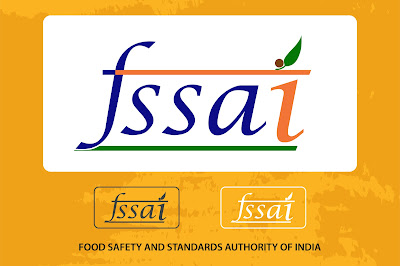The FSSAI (Food Safety and Standards Authority of India) license is a mandatory certification for businesses involved in the food industry in India. It ensures that food products meet safety and quality standards. Here’s an overview of the FSSAI license:
The Food Safety and Standards Authority of India (FSSAI) is a regulatory body established under the Ministry of Health and Family Welfare, Government of India. Its primary responsibility is to ensure the safety and quality of food products in India. FSSAI regulates and supervises the production, distribution, and sale of food to ensure that food is safe for consumption and meets the required quality standards.
Key Functions of FSSAI:
Setting Food Standards: FSSAI is responsible for setting the standards for food products, including food additives, contaminants, and hygiene standards. It ensures that the food consumed in India meets safety and quality standards.
Licensing and Registration: FSSAI provides licensing and registration to food businesses in India. This includes food manufacturers, distributors, retailers, and food importers. The authority categorizes food businesses into different licenses based on the size and scale of operations.
Food Safety Compliance: FSSAI enforces food safety regulations across the food supply chain. It conducts inspections, audits, and monitoring to ensure that food products adhere to safety standards.
Consumer Awareness: The FSSAI is also responsible for educating consumers about food safety and nutrition. It promotes awareness about food labeling, food handling, and safe food consumption practices.
Research and Development: The organization encourages research and development in food safety, supporting innovations in food processing, preservation, and packaging.
Import and Export Regulation: FSSAI plays a critical role in regulating food imports and exports, ensuring that food items entering or leaving the country comply with food safety standards.
FSSAI Licensing and Registration
For food businesses to operate legally in India, they must obtain an FSSAI license or registration, depending on the scale of their operations. There are three types of licenses issued by FSSAI:
FSSAI Registration:
- For small businesses, such as local food vendors, small manufacturers, or home-based food businesses.
- It is a basic registration and does not require detailed inspections.
FSSAI State License:
- For medium-sized food businesses like manufacturers or distributors whose operations fall within the boundaries of a single state.
- A State License is granted after a detailed inspection of the facility.
FSSAI Central License:
- For large food businesses operating across multiple states or for businesses involved in food imports and exports.
- The Central License is more comprehensive and requires the highest level of compliance with food safety standards.
Importance of FSSAI in Food Safety:
Ensures Food Safety: FSSAI ensures that food products are free from contaminants, harmful chemicals, or adulterants, protecting public health.
Standardization of Food Products: It creates uniform food safety standards, making it easier for food producers and manufacturers to maintain consistent quality.
Consumer Confidence: With the FSSAI logo or license number on food products, consumers can trust that the food they are consuming has been inspected and approved by the regulatory body.
Legal Enforcement: FSSAI has the authority to take legal actions against businesses that violate food safety regulations, such as issuing penalties, fines, or shutting down operations.
Global Trade Facilitation: FSSAI plays a crucial role in regulating food exports, ensuring that Indian food products meet international standards and boosting India’s presence in the global food trade market.
FSSAI Logo and Labeling:
Food businesses registered with FSSAI must display the FSSAI logo and license number on their product packaging. This helps consumers identify food products that comply with safety standards. In addition to the FSSAI logo, certain food labeling requirements must be followed, such as:
- Nutritional Information: Information on the calorie content, fats, carbohydrates, proteins, vitamins, and other nutrients in the product.
- Ingredients List: The ingredients used in the food product.
- Date of Manufacture and Expiry: To ensure freshness and safety.
- Allergen Information: If the food contains any common allergens, such as nuts or gluten, this must be clearly mentioned.
Conclusion:
FSSAI plays a pivotal role in maintaining the integrity of India’s food supply chain by setting food safety standards, ensuring compliance, and educating consumers. It is essential for food businesses to comply with FSSAI regulations to operate legally and contribute to public health. With growing concerns about food safety and health, FSSAI remains a cornerstone of India's efforts to provide safe, nutritious, and high-quality food to its population.


0 Comments